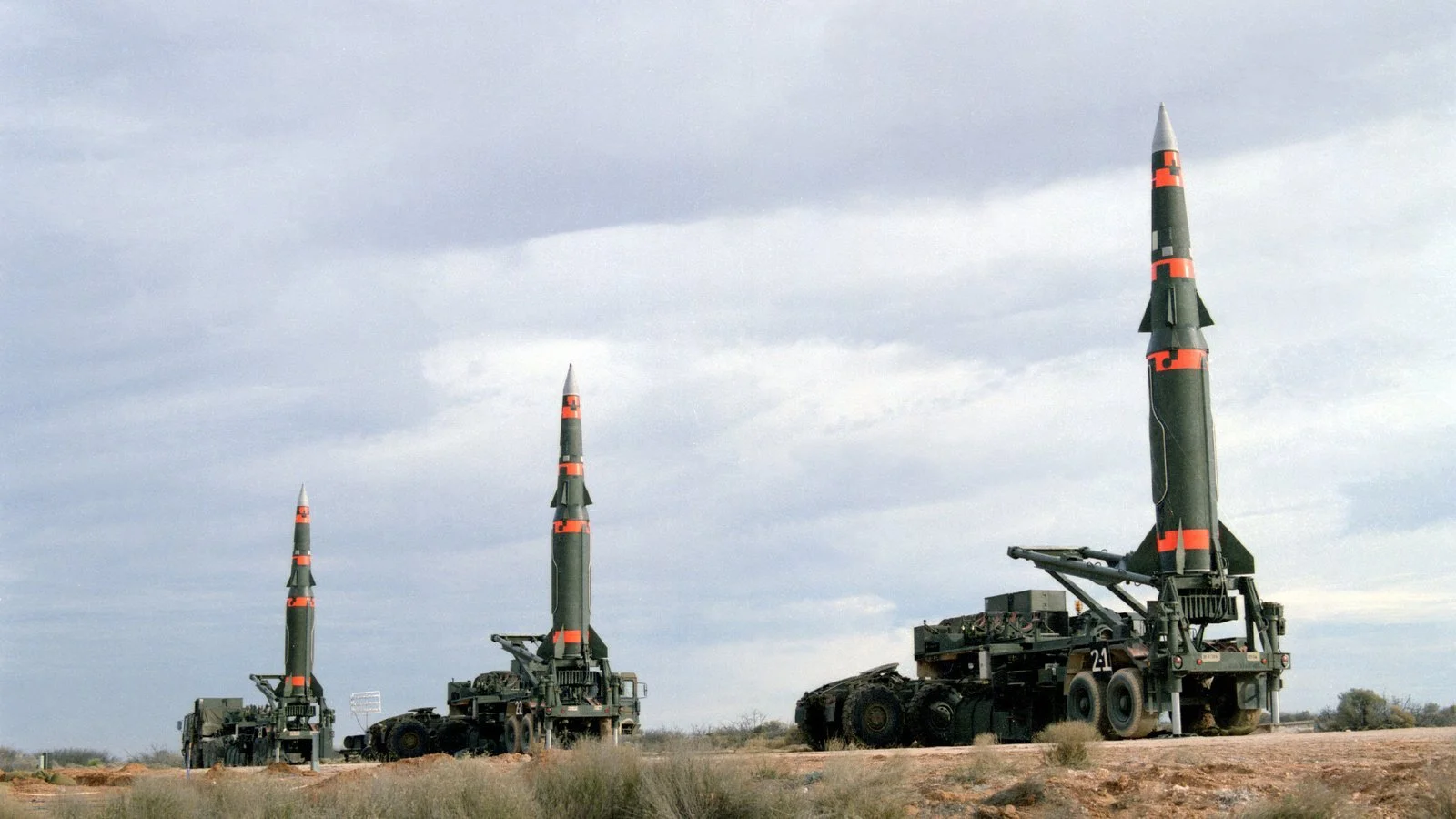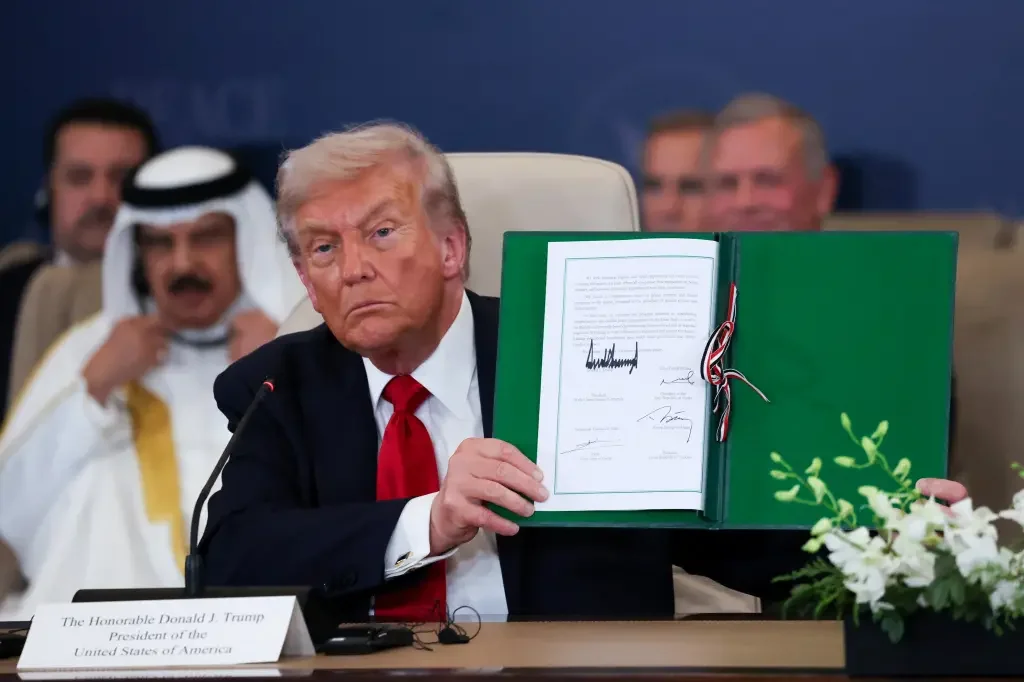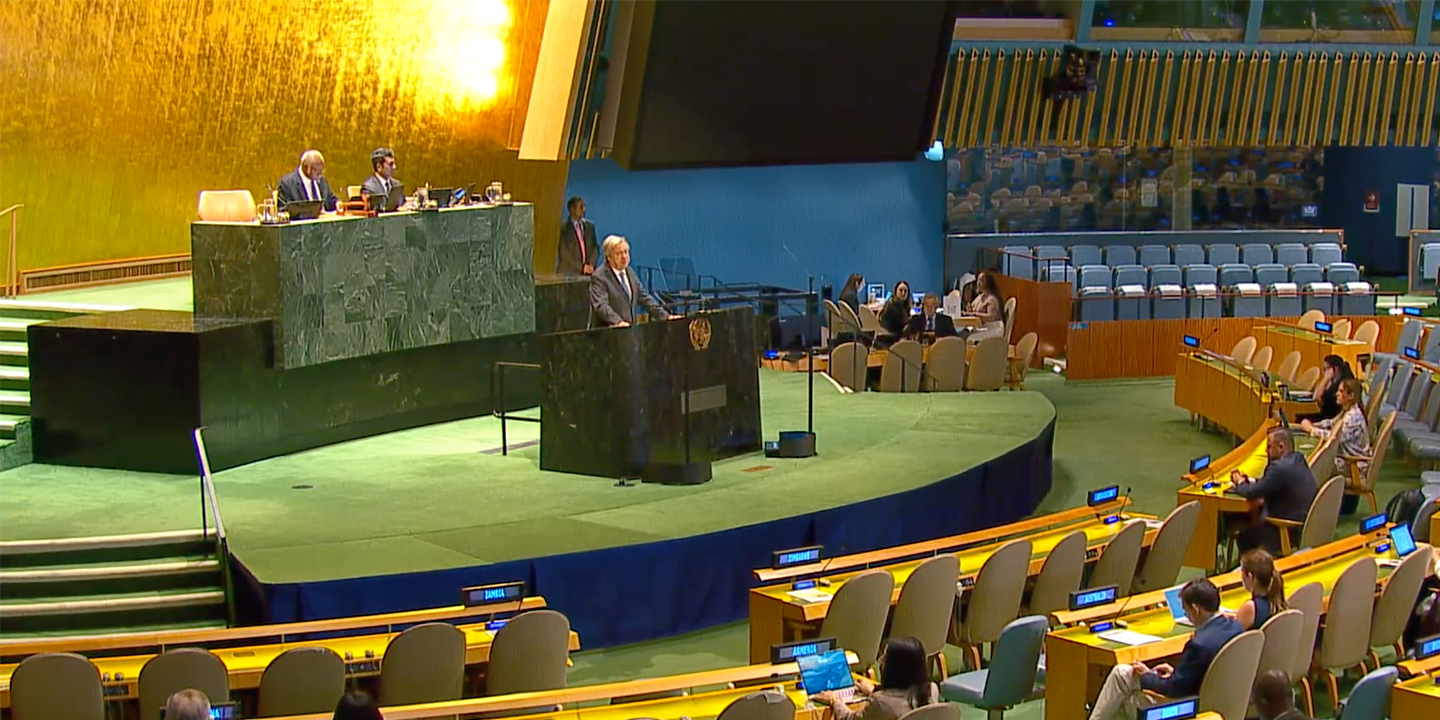![The Specter of Nuclear Anarchy: Rising Risks in a Modern Era]()
The global landscape of nuclear security has become increasingly dangerous, reminding policymakers and the public that the threat of nuclear disaster, once thought to be only a Cold War risk, continues to shape international relations. While international norms established by foundational agreements like the Non-Proliferation Treaty (NPT) of 1968 and the Comprehensive Test Ban Treaty (CTBT) have curbed the spread of nuclear weapons, recent geopolitical trends and startling rhetorical shifts suggest these norms are eroding. The evidence is clear: growing tensions between nuclear-armed states are encouraging proliferation and increasing the likelihood of nuclear conflict.
A sudden declaration by President Donald Trump ordering the resumption of American nuclear weapons testing served as a potent, albeit poorly conceived, reminder of the enduring nuclear threat. Trump’s announcement, made shortly before a crucial meeting with Chinese President Xi Jinping, instructed the Defense Department to "immediately" recommence the testing of U.S. nuclear weapons "on an equal basis" with other nations. This directive shocked the American national security establishment and immediately prompted sharp responses from Beijing and Moscow…
Read MoreThe ceasefire agreement reached between Hamas and Israel has been greeted with cautious relief across the world. After two years of relentless fighting, both sides have accepted what President Donald Trump described in his Knesset address as “a moment of joy and soaring hope.”
The human cost that preceded this moment is staggering: roughly 1,200 people were killed in the Hamas attacks of October 7, 2023, and 250 others were taken hostage. Since then, Israeli operations have killed more than 67,000 Palestinians—possibly 18,000 of them children—and reduced much of Gaza to rubble. It is believed that over 1,000 members of the Israeli Defense Forces and additional Israeli civilians have also been killed…
Read More
![A Fractured World Order Faces the UN: Why the 2025 General Assembly Matters]()
German Foreign Minister Annalena Baerbock opened this year’s United Nations General Assembly (UNGA) in New York with a sobering warning: this is “no ordinary session.” The phrase was more than rhetorical. It captured a deeper truth that both world leaders and those they represent are now confronting—that the multilateral system, long taken for granted as a stabilizing force, is under unprecedented strain.
For years, the annual assembly has been seen as diplomatic theater. But in 2025, with wars raging, the climate crisis deepening, and great-power rivalry reshaping the global economy, UNGA has become a test of whether international governance can adapt—or whether power will fragment into competing blocs. With the rules of the so-called “rulesbased order” now no longer honored in the observance or in the breach, the stakes are no longer abstract. The outcomes and failures of this year’s assembly will shape trade policy, energy markets, sanctions compliance, ongoing and future conflicts and the durability of the institutions that underpin global governance and economics…
Read More
![A Tactical Triumph, a Strategic Question Mark]()
The American airstrike against Iran — codenamed Operation Midnight Hammer — was, in operational terms, a masterclass in the focused use of military power. In the early hours of 22 June 2025, seven B-2 stealth bombers carrying 30,000-pound Massive Ordnance Penetrator bombs, supported by submarine-launched cruise missiles and over 120 other aircraft, struck Iran’s most fortified and important nuclear facilities at Fordo, Natanz, and Isfahan. The targets were chosen with surgical precision. No American personnel or aircraft were lost.
The strike was executed under the shadow of the Twelve Day War between Iran and Israel, a conflict in which Israeli forces had already inflicted severe damage on Tehran’s air defenses and missile launchers. In a coordinated series of blows, Israeli strikes killed dozens of senior Iranian military officers and nuclear scientists. Iran’s vaunted proxy deterrent network, anchored by Hezbollah, had previously been badly degraded.
The immediate military verdict is clear: this was a devastating, high-tempo strike that neutralized key nuclear infrastructure and struck at the heart of Iran’s overall strategic capacity. But military success does not automatically translate into strategic victory…
Read MoreThe NATO Summit held on June 25, 2025, was the shortest in the alliance’s history—and yet, perhaps one of the most consequential. In less than 24 hours, leaders of the 32-member alliance endorsed a communiqué that outlined a dramatic reorientation of NATO’s strategic and financial posture. Secretary General Mark Rutte hailed it as “transformational,” citing a new defense spending target, pledges to ramp up military-industrial capacity, and an “ironclad” recommitment to collective defense under Article V.
But behind the polished language lies a more complex story: one of political compromise, shifting transatlantic power dynamics, and unresolved tensions over Ukraine, nuclear strategy, and industrial sovereignty. While the summit avoided the rupture many feared under President Donald Trump’s second term, it may ultimately be remembered less for its declarations and more for its omissions and ambiguities…
Read More
![The Future of U.S.-India Relations: Allies by interest, not by design]()
For all the geopolitical fanfare that surrounds the U.S.-India relationship — the shared democratic identity, the pivot to Asia, common concerns about an aggressive China — this remains a partnership with limits. It is forged more by converging interests than shared grand strategies. It is stable, but brittle. Warm, but cautious. And after the 2025 Pahalgam crisis, it faces its most intense test yet.
The U.S.-India relationship matters already, and its importance will grow in future. India is the world’s fastest-growing major economy. It’s critical to global supply chains, arms trade, and regional maritime stability. But India is also increasingly nationalistic, militarily assertive, resistant to external influence (including from Washington) and in many ways encumbered by its past.
As the recent crisis in Kashmir revealed, the U.S. may believe India is a cornerstone of its evolving Indo-Pacific strategy. But India doesn’t see itself as a cornerstone of anything but its own grand design. And, sadly, its inability to establish a stable relationship with Pakistan may threaten Washington’s ability and willingness to expand relations…
Read More
![Here's what President Trump should say to those graduating from West Point]()
On Saturday, President Donald Trump delivers the commencement address to the class of 2025 at the United States Military Academy at West Point. Presidents normally deliver graduation remarks at one of our nation’s service academies each year. Trump spoke to the class of 2020 during his first term.
Commencement speeches are difficult. They are intended to celebrate the students upon their graduation and offer words of encouragement and guidance as they transition into the next phase of their lives. I imagine most speakers hope they might say something that graduates will remember in future, but we must admit that most fail.
But military academy graduations are unique. Unlike other college graduations, every cadet about to receive a diploma knows what their first job is going to be and where.
I was one of those cadets over 50 years ago and remember the day well. Our speaker was Gen. William Westmoreland, who had recently returned from command in Vietnam and assumed responsibilities as Army chief of staff.
All my classmates were excited that the day we had long awaited had finally arrived. Each of us privately had a bit of trepidation about what the future might bring. We also knew it was the last time we would all be together. So, if I were able to tell Trump or his speechwriters what suggestions might I make?
Read More
![Pete Hegseth's reason for dismissing top-ranking military leaders makes no sense]()
Defense Secretary Pete Hegseth’s plan to dismiss 10% of active duty general or flag officers and eliminate 20% of four-star general officer positions in the active-duty military was announced in a memo that says the Pentagon “must cultivate exceptional senior leaders who drive innovation and operational excellence.” But we’re all left wondering: What problem does this planned reduction solve? Or is it the Trump administration’s indictment of the current senior leadership of the United States military?
What analysis was conducted that resulted in these proposed reductions, or are they just arbitrary percentages? The American public deserves to know the strategy that’s motivating this plan.
The Pentagon’s May 5 memorandum for senior leadership also directed a 20% reduction in general officers in the National Guard. Said memo provides few details on how this is to be effected and sets no deadline. But this effort will unquestionably have a profound impact not only on our nation’s military leadership but also the direction of American national security policy in the future…
Read MoreSince the Russian invasion of Ukraine in February 2022, President Putin has insisted that an end to the war could only occur if the “root causes” of the conflict were addressed. He further argued that Moscow viewed these as non-negotiable and had to be dealt with if a stable peace was to be achieved. Putin has been very consistent with these demands, and they have been frequently echoed by his Russian Foreign Minister Sergei Lavrov, Presidential Press Spokesman Dmitry Peskov, UN Ambassador Vasily Nebenzya, and other Russian officials…
Read MoreThe motorcade of Donald Trump’s nuclear envoy, Steve Witkoff, was delayed on the way to the Omani ambassador’s residence in Rome, where the United States was set to begin negotiations with Iran. His car missed the driveway, backed into a tight street, before it had to circle around again. As far as metaphors go, it was almost too perfect. This is Trump’s Iran policy in 2025: hurried, high-stakes, and dangerously imprecise…
Read MoreIn just over 60 days, President Donald Trump’s new administration has released a seismic shock on the foundations of American foreign and defense policy. What had once seemed unshakable pillars – NATO solidarity, transatlantic security commitments, nuclear non-proliferation policies, and trusted intelligence alliances – are now in visible disarray. While the immediate shifts have made headlines, second-order consequences are quietly but profoundly reshaping the geopolitical order. Nowhere are these reverberations more visible than in Europe, where decades of strategic assumptions are being rapidly overturned…
Read More
![Germany's election puts it at a crossroad]()
Germany’s recent elections signaled the beginning of epic change for the country and the continent of Europe. It marked a significant shift in the nation’s political landscape at a time of global uncertainty, and the election followed the extraordinary collapse of Chancellor Olaf Scholz’s coalition government. The results reveal that Germany is at a crossroads, with rising populist sentiments, economic stagnation, and critical questions about the country’s role in the European Union, relations with the United States, as well as its impact on both regional and global security.
The focal point is the expected next chancellor, Friedrich Merz, the leader of Germany’s center-right Christian Democrats (CDU). He made clear that the country would be striking out on a new path within hours of his party declaring victory when he made an extraordinary statement on national television. Merz declared Europe was at “five minutes to midnight,” and he intended to “achieve independence from the USA” because it was “clear that the Americans… are largely indifferent to the fate of Europe…”
Read MoreAuthor: Sydney Nauman
A high-stakes White House meeting intended to advance peace negotiations between Ukraine and Russia instead devolved into a heated confrontation between President Donald Trump and Ukrainian President Volodymyr Zelenskyy on Friday, leaving Pennsylvania's Ukrainian-American community increasingly anxious about their homeland's future.
The Oval Office meeting, which was meant to finalize a deal giving the United States access to Ukraine's valuable rare earth minerals, collapsed after Zelenskyy insisted on stronger security guarantees in any potential peace agreement with Russian President Vladimir Putin…
Read MoreWhen Vice President JD Vance took the stage at the Munich Security Conference earlier this month, European officials in the room were nervous. Some anticipated rhetoric like Defense Secretary Pete Hegseth’s earlier remarks in Brussels – that the U.S. was no longer focused on European or Ukrainian security. There were rumors Vance would announce a full U.S. troop withdrawal from Europe, which proved false…
Read MoreThe conflict in Ukraine has been described as a war being fought for 19th century goals, employing 20th century tactics, and using 21st century technology. Moscow’s goal for the war in Ukraine is to resurrect the Russian empire that collapsed with the Bolshevik Revolution in 1917. Battlefield tactics remind us of World War I with mass infantry attacks, heavy reliance on artillery, and the return of “industrial warfare” that has shown Western defense industries ill-prepared. But this conflict has also shown that modern warfare is conducted in new domains and relies on fresh methodologies…
Read MoreThe war in Gaza that began on 7 October 2023 has become one of modern history’s most significant Middle East conflicts due to its scale and the humanitarian crisis it sparked. Its legacy will surpass previous regional wars in terms of the human cost, economic devastation, and geopolitical impact on the region. Hamas’ attack resulted in over 1,700 Israeli civilians being murdered and 250 taken as hostages. In response the Israeli Defense Force (IDF) conducted a land and air campaign that killed over 46,000 Palestinians in Gaza alone. Of those killed, at least half were women, children, and the elderly. ..
Read MoreMuch of the opposition to former Fox News host Pete Hegseth, whom President-elect Donald Trump has nominated to serve as defense secretary, has centered on allegations that he has abused women and alcohol. Hegseth has denied mistreating women, and he denied a woman’s allegation that he sexually assaulted her in a California hotel room in 2017 and he was never charged in the case. He reached a confidential settlement with his accuser last year. Though he has denied reports that he had a drinking problem that his co-workers noticed, he has promised that he is “not going to have a drink at all” if he is confirmed as defense secretary…
Read More2024 was a year of elections, spanning countries with a collective population of more than 4 billion people – about half the world. But these elections do not appear to have ushered in a period of stability, rather 2025 looks to be a year of conflict and turbulence. The attacks in New Orleans and Las Vegas on New Year’s Day, which do not appear to be linked, only illustrate this further…
Read MoreRepublic of Korea (ROK) President Yoon Suk Yeol was impeached on 14 December by the National Assembly and faces possible insurrection charges after he suddenly declared martial law earlier this month – a declaration that the country’s parliament almost immediately overturned. Yoon claimed this was a legal decision to "prevent the collapse" of democracy and counter the opposition party’s "parliamentary dictatorship." In a speech to the nation, the embattled president apologized defended his shocking decision and insisted he would “fight until the end.” The country now faces a very public political fight over the next six months while the Constitutional Court decides whether to remove Yoon from office…
Read MoreWith the results of the presidential election, American voters made clear that domestic issues should be prioritized over foreign affairs – particularly when it comes to the war in Ukraine. Donald Trump promised voters that he would end the war with Russia within 24 hours of being elected. While he never presented a plan that would convincingly conclude the conflict – and it is likely impossible to end a clash of this magnitude very quickly – it will be a primary concern for him when he returns to the White House next month. Ending this war will be challenging especially since it has escalated significantly since August, and there is little doubt that we face the possibility of global conflict with the possible use of nuclear weapons…
Read More



















